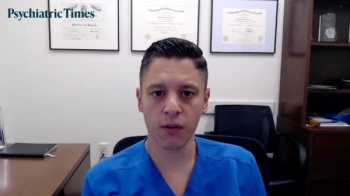
Artificial Psychiatry: Social Psychiatric Prediction #1
AI and psychiatry: where are we headed?
PSYCHIATRIC VIEWS ON THE DAILY NEWS
Often, the best predictor of the future is what happened in the past. For instance, people with a history of multiple violent episodes are more likely to have another without successful intervention.
However, when we turn to the future of artificial intelligence (AI) and psychiatry, we have little history to fall back on. With the advance and emergence of ChatGPT, now version 4, certain intellectual capabilities are beginning to rival—if not at times exceed—that of humans. The upgrades now are coming fast and furious.
Self-disclosure: I did not use the ChatGPT technology for this piece in any other way than discussing it! (But how would you know if I am telling the truth here!?)
There is a wide range of public reactions to these advances, but anyone who has watched the movie 2001 will recall with some trepidation the computer HAL, crucial for the space mission, running amok and traumatically threatening to kill all the humans around it.
What might be the role of the field of psychiatry in this process?
First is an expansion of clinical need. Some patients will be adversely affected by AI in various ways and need help for that. We will also need to help with any of the adverse brain changes that are paradoxically caused by the technology of social media, like the “selfie effect” of adverse personal self-assessment of appearance.
Second is the technology of mental self-help. There is a proliferation of online symptom checkers which can also provide recommendations for diagnosis and treatment. In the future, I would not be surprised if ChatGPT or related technology exceeds the diagnostic ability of some psychiatrists. From the financial standpoint, AI will become cheaper for what it can do.
At its best, we can develop an AI and psychiatry partnership. It would be wonderful if it expedited and enhanced current research projects, especially given how hard it is to research our well-protected brains. Clinically, we can also use the technology to help diagnose and choose medications. Psychotherapy is a different story given the importance of the therapeutic alliance and human relationship.
A recent Pew Research Center survey indicated that “60% of Americans Would Be Uncomfortable with Provider Relying on AI in Their Own Health Care.”1 Of course, that may decrease as we get used to AI, especially if it is successful. But can AI match or exceed our human capabilities of empathy, compassions, touch, and assessing nonverbal communications? My own personal lesson on this came years back, preinternet, when I brought a new clinic patient, a middle-aged Black woman, into my office. She immediately said: “I’m so glad you’re my psychiatrist.” I thanked her and asked why. She answered: “I got here early, and you were the only psychiatrist that smiled when you saw your patient.” We worked together successfully thereafter.
Where does all this leave the field of psychiatry and psychiatrists? I think it leaves us with the need for a subspecialty of artificial psychiatry. I would predict AI will advance the field of psychiatry, but reduce the numbers of needed psychiatrists. In other words, there will likely be more psychiatric need, but less of it done by psychiatrists.
Whatever possibilities, and regardless that some patients will prefer working with a machine, goodness knows that those psychiatrists who will flourish the most will be those who are both adept enough at the technology and radiate what is irreplaceable in our caring and healing humanity.
Dr Moffic is an award-winning psychiatrist who has specialized in the cultural and ethical aspects of psychiatry. A prolific writer and speaker, he received the one-time designation of Hero of Public Psychiatry from the Assembly of the American Psychiatric Association in 2002. He is an advocate for mental health issues related to climate instability, burnout, Islamophobia, and anti-Semitism for a better world. He serves on the Editorial Board of Psychiatric Times™.
Reference
1. Tyson A, Pasquini G, Spencer A, Funk C. 60% of Americans would be uncomfortable with provider relying on AI in their own health care. Pew Research Center. February 22, 2023. Accessed March 20, 2023.
Newsletter
Receive trusted psychiatric news, expert analysis, and clinical insights — subscribe today to support your practice and your patients.






